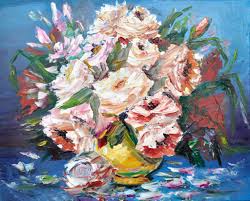communal
VITEBSK ART SCHOOL (part 2)
 Having learned the lessons of new European art and declaring himself to be a rapidly maturing master, M. Chagall returned to Vitebsk on the eve of the First World War. In fact, in less than a decade, from an unknown student of a provincial artist, he grows into one of the leading masters of the emerging avant-garde. And this is not surprising if you pay attention to how easily and organically he created his original art system, attracting childishly naive imagination and romantic metaphor, intrepidly departing from realism and ahead of the masters of Western Europe, whose evolution indicates the intense efforts made to free oneself from the tenacious embrace of the artistic tradition. Continue reading
Having learned the lessons of new European art and declaring himself to be a rapidly maturing master, M. Chagall returned to Vitebsk on the eve of the First World War. In fact, in less than a decade, from an unknown student of a provincial artist, he grows into one of the leading masters of the emerging avant-garde. And this is not surprising if you pay attention to how easily and organically he created his original art system, attracting childishly naive imagination and romantic metaphor, intrepidly departing from realism and ahead of the masters of Western Europe, whose evolution indicates the intense efforts made to free oneself from the tenacious embrace of the artistic tradition. Continue reading
contact
troubles
watercolors
milestone
community
ideological
creation
subsequent
emergence
technique
student
professional
background
modest
arrogance
artists
sixties
educational
absolutely
different
resistant
combination
landscape
period
density
minerals
members
communal
returned
enthusiasm
characteristic
transmitted
musician
finally
festivals
canvas
decorative
phenomenon
reproduction
harmony
composition
technologies
selection
photography
development
sepia
workshop
school
until
province
various
again left
soldiers
documentary
landscapes
movements
number
performance
manufacture
institution
distinguished
traditions
unshakable
snowflakes
Museum
available




